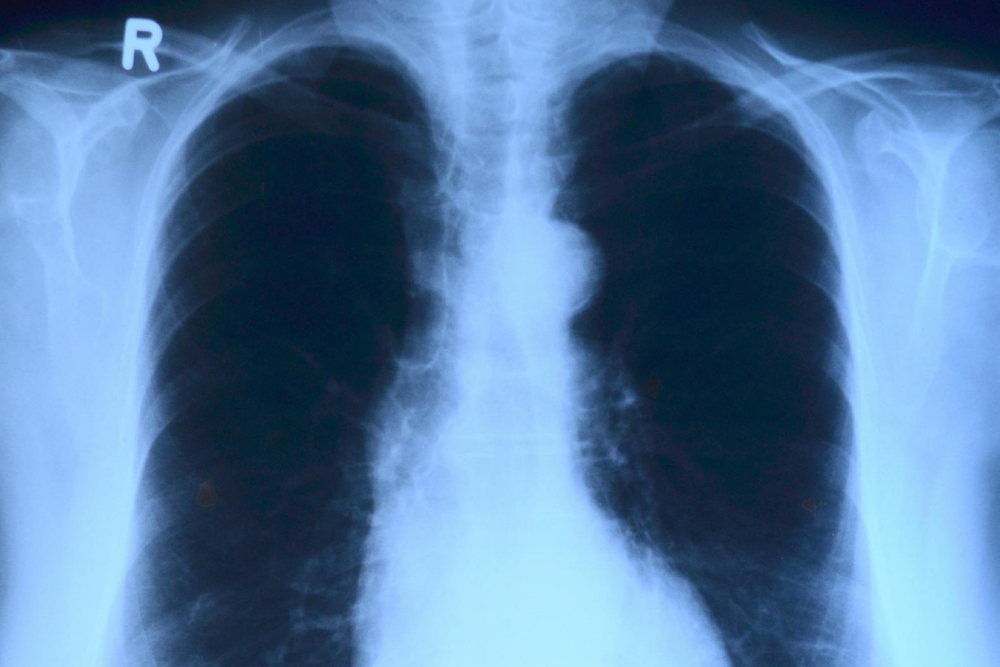Can Lung Cancer Be Misdiagnosed?

Learning that you have lung cancer can be overwhelming. Lung cancer is unfortunately prevalent. An estimated 236,000 Americans are diagnosed with this disease every year. While most people associate lung cancer with smoking, 12% of new cases are diagnosed among people who have never smoked, and 65% of new lung cancer diagnoses are among former or never smokers.
While receiving a lung cancer diagnosis is scary, it is better to receive it early than later. However, lung cancer diagnoses are unfortunately common. If you experience a delay in your diagnosis, your chances of recovering might be greatly diminished. A misdiagnosis of cancer might entitle you to pursue compensation with the help of the attorneys at Raynes & Lawn.
What Are the Types Of Lung Cancer?
There are two primary types of lung cancer, including non-small cell lung cancer and small cell lung cancer. The most common type diagnosed is non-small lung cancer, which accounts for 85% of all cases. There are additional subtypes of non-small cell lunger cancer, including squamous cell carcinoma, large cell carcinoma, and adenocarcinoma. When diagnosed early, non-small cell lung cancer might respond well to treatment. However, if it is not caught during its early stages, it can progress to a more advanced stage and worsen the patient’s prognosis.
Small-cell lung cancer is less common than non-small cell lung cancer. It is diagnosed in about 10% to 15% of people with lung cancer. Small-cell lung cancer doesn’t respond as well to conventional treatments. Finally, two other types of lung cancer include adenoid cystic carcinoma and lung carcinoid tumors.
Common Lung Cancer Symptoms
Lung cancer symptoms can vary, and some people in the early stages of lung cancer might not have symptoms.
Some of the common symptoms of early-stage lung cancer include the following:
- Bloody sputum
- Wheezing
- Chronic cough
- Shortness of breath
- Unintended weight loss
- Chest pain
If you notice any of these symptoms, you should talk to your doctor as soon as possible to obtain a diagnosis.
What Causes Lung Cancer?
There is a strong correlational relationship between smoking and lung cancer. It is believed that the carcinogens contained in cigarette smoke damage the cellular DNA in the cells lining your lungs. These changes can prompt hyperactive cellular division over time, resulting in the growth of cancerous tumors.

While smoking is a major risk factor for developing lung cancer, non-smokers can also develop this disease. Other risk factors for developing lung cancer include workplace exposure to carcinogenic substances and exposure to secondhand smoke. There also might be a genetic link involved with developing lung cancer. People who have a parent or sibling who has had lung cancer have an increased risk of also developing it.
Can Lung Cancer Be Misdiagnosed?
Lung cancer is progressive. A delay in your diagnosis can mean that you don’t receive treatment to fight cancer until your cancer has worsened. People who aren’t properly diagnosed with lung cancer until it has reached an advanced stage have a poor long-term rate of survival.
In some cases, a doctor might not recognize that your symptoms are serious. Doctors sometimes assume that the early symptoms of lung cancer are caused by something more benign. Doctors might fail to take the time to get your medical history and listen to your symptoms, so they might fail to order appropriate tests.
Testing delays are a big problem. If you have suspected lung cancer, your doctor should refer you to a specialist for additional testing. The symptoms of lung cancer can be misdiagnosed as asthma, cardio-obstructive pulmonary disease (COPD), or lung cancer misdiagnosed as acid reflux by a primary care doctor. Once the doctor realizes that the treatments for the incorrectly diagnosed condition aren’t working, your cancer might have progressed.
Another issue might occur when your doctor fails to follow up on abnormal results on your tests. For example, if an x-ray or another imaging study reveals nodules, your doctor should investigate further. If the doctor fails to do so, he or she might miss your diagnosis of lung cancer. Misreading test results can also result in a delayed diagnosis of lung cancer.
This can happen when errors are made in the lab or by the pathologist. For example, if a mistake is made when the lab technician processes a sample, or a radiologist misreads an imagining test, a delayed diagnosis can result.
Other Conditions That Might Be Misdiagnosed
When you are tested for lung cancer, your doctor should also test you for the following conditions to rule them out:
- Bronchial pneumonia
- Lung nodules
- Tuberculosis
- Lung abscesses
- Lymphoma
- Encysted lung effusion
In some cases, a doctor will want to begin treatment as soon as possible when he or she suspects lung cancer. However, if you instead have one of the above-listed conditions, you might undergo potentially harmful treatment when your underlying condition is not lung cancer.
By contrast, the above-listed conditions might be diagnosed when you actually instead have lung cancer. In this type of diagnostic error, your cancer cells can spread while you receive unnecessary treatment for a condition you do not have. In some cases, a patient might die from lung cancer before it is ever properly diagnosed.
If you have symptoms that make you believe you might have lung cancer, you should speak to your doctor immediately. Early treatment can increase your chances of recovering. With a disease as serious as lung cancer, it is also a good idea for you to seek a second opinion.
Contact Raynes & Lawn
If you suffered a worsening of your lung cancer because of a delayed diagnosis, you should talk to the attorneys at Raynes & Lawn. We have decades of experience fighting for the rights of medical malpractice victims and can help you understand your options. Call us today for a free consultation at 1-800-535-1797.

For the general public: This Blog/Website is made available by the law firm publisher, Raynes & Lawn, for educational purposes. It provides general information and a general understanding of the law but does not provide specific legal advice. By using this site, commenting on posts, or sending inquiries through the site or contact email, you confirm that there is no attorney-client relationship between you and the Blog/Website publisher. The Blog/Website should not be used as a substitute for competent legal advice from a licensed attorney in your jurisdiction.
For attorneys: This Blog/Website is informational in nature and is not a substitute for legal research or a consultation on specific matters pertaining to your clients. Due to the dynamic nature of legal doctrines, what might be accurate one day may be inaccurate the next. As such, the contents of this blog must not be relied upon as a basis for arguments to a court or for your advice to clients without, again, further research or a consultation with our professionals.
